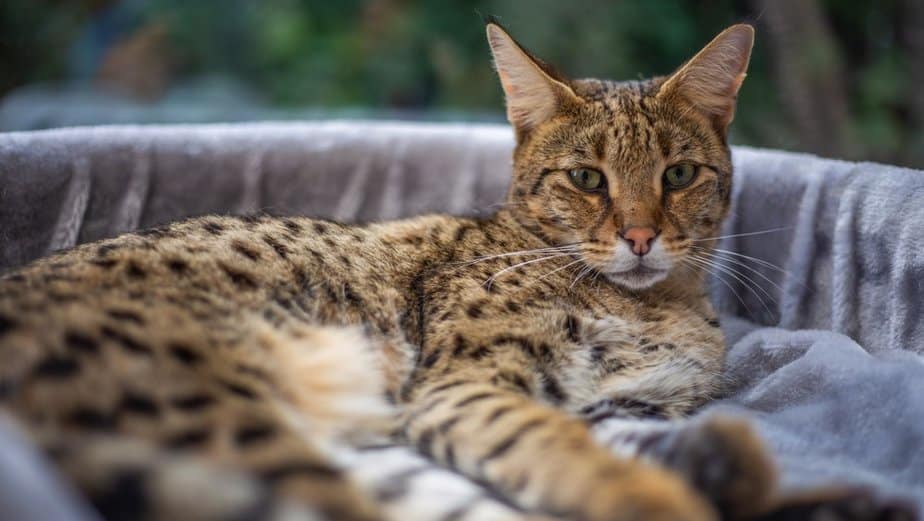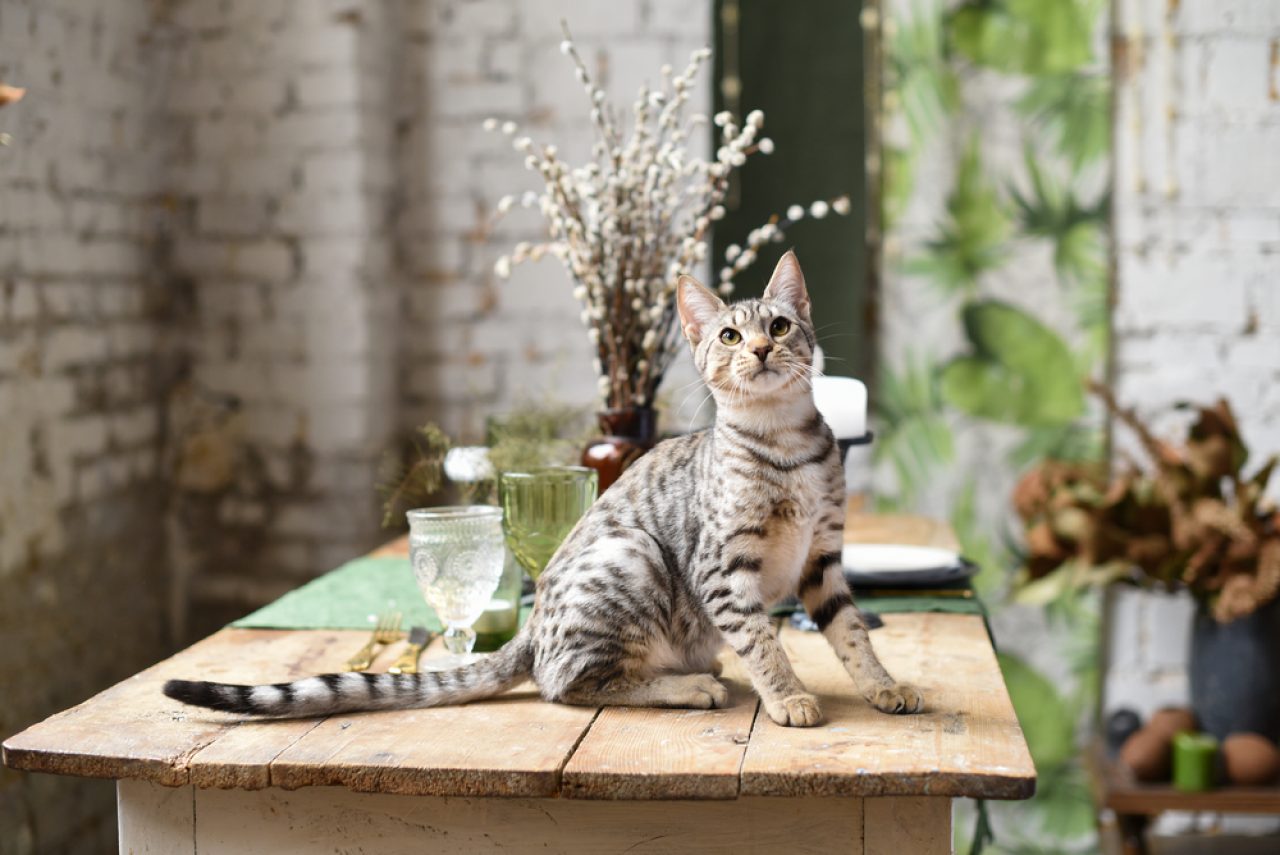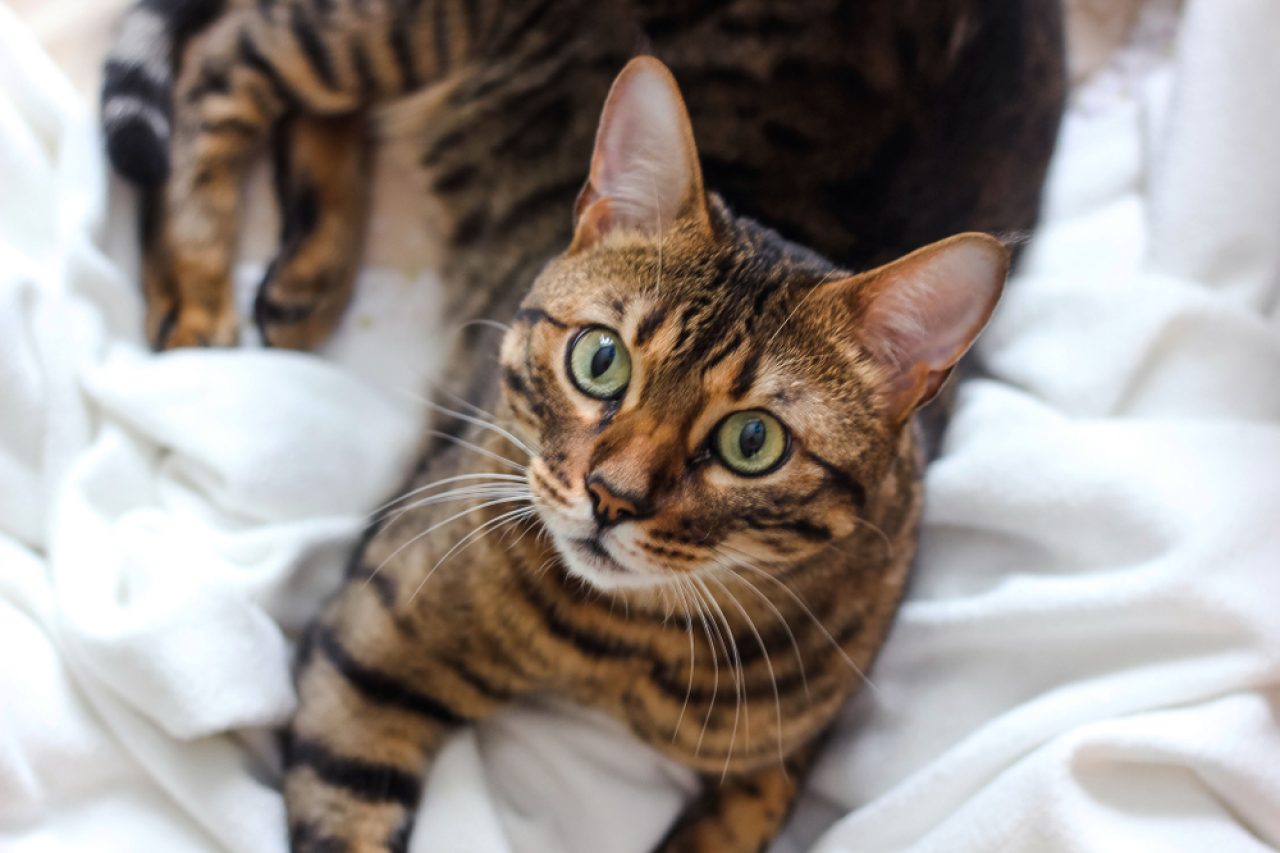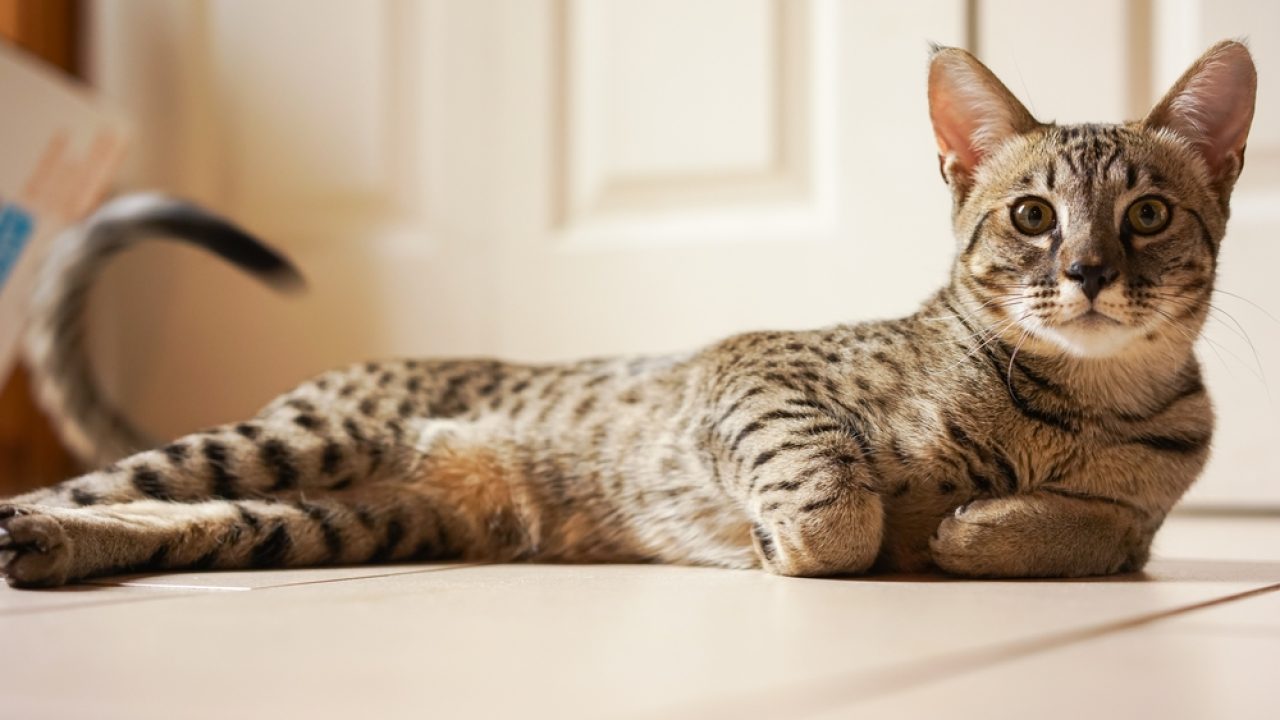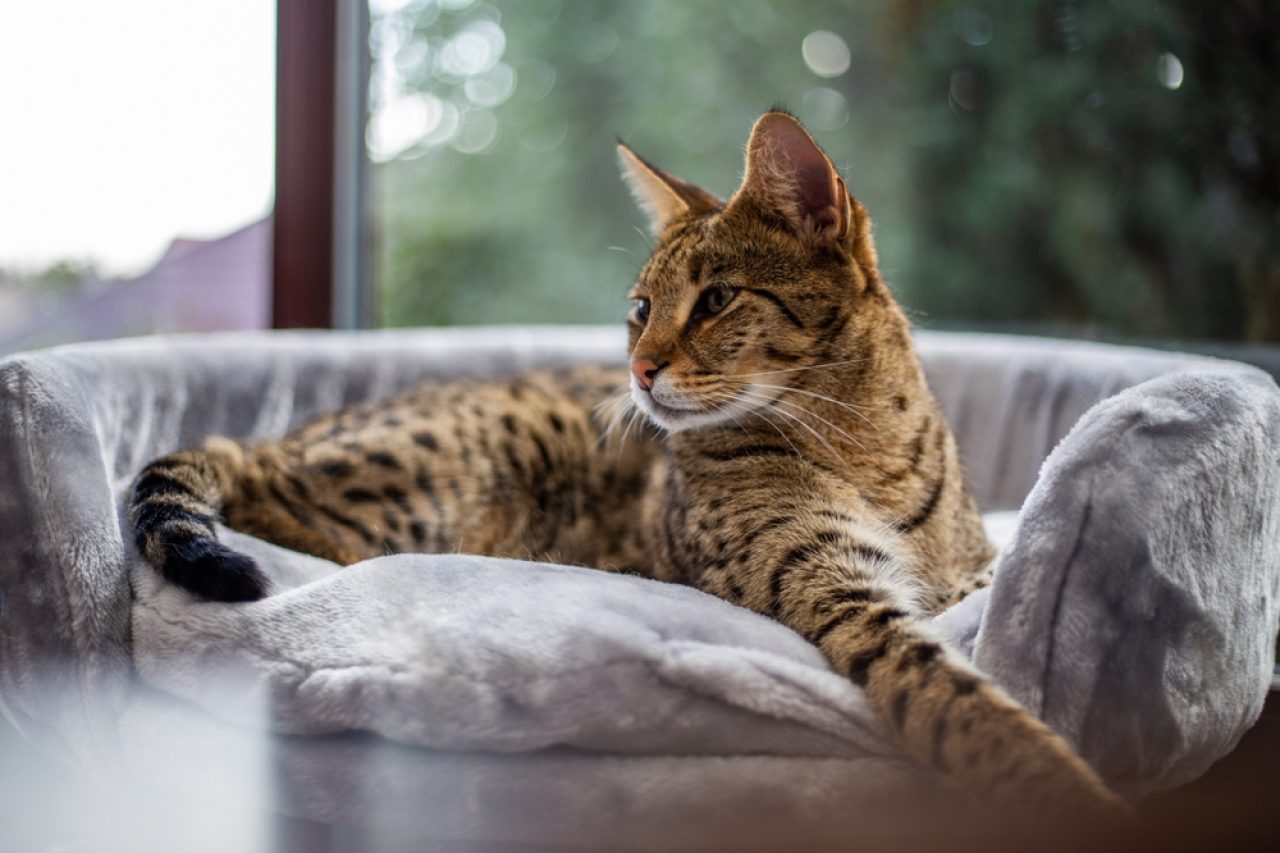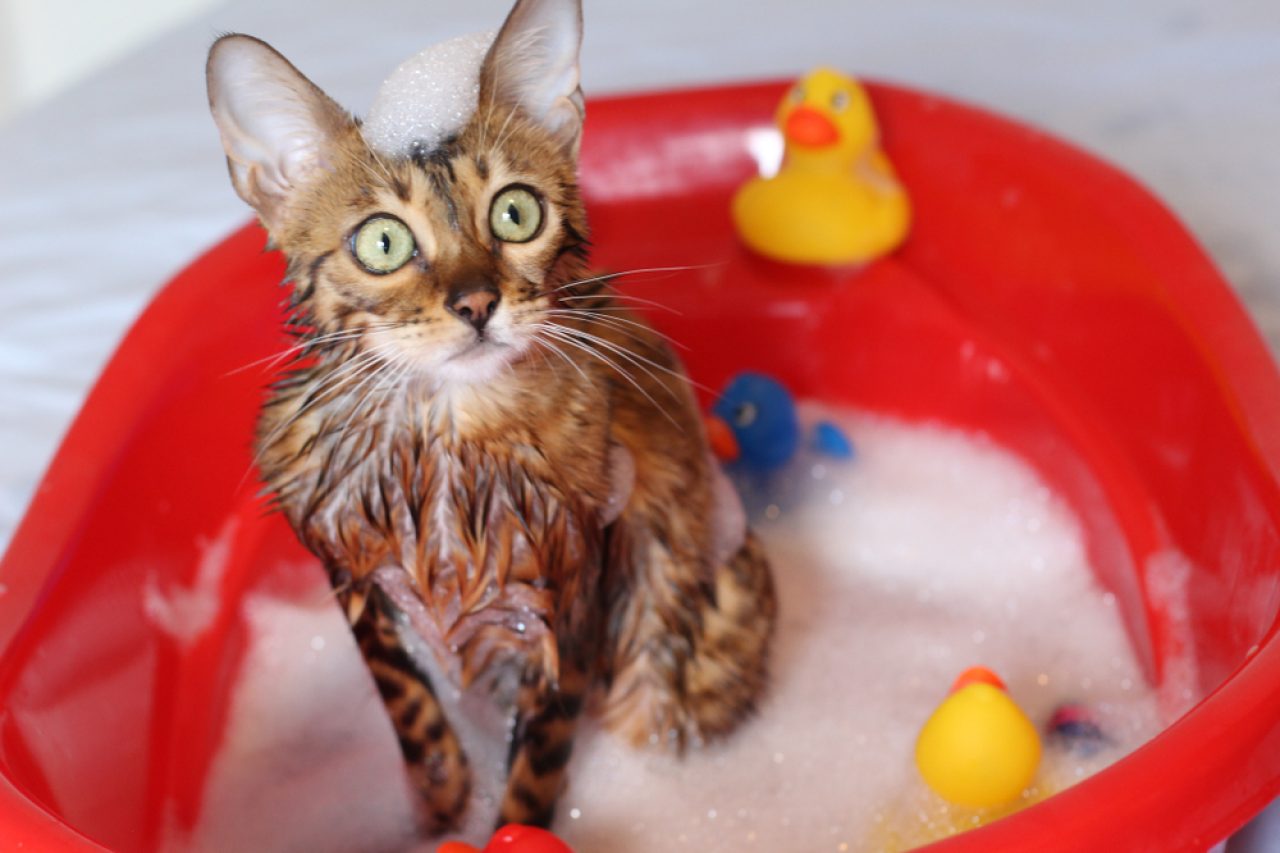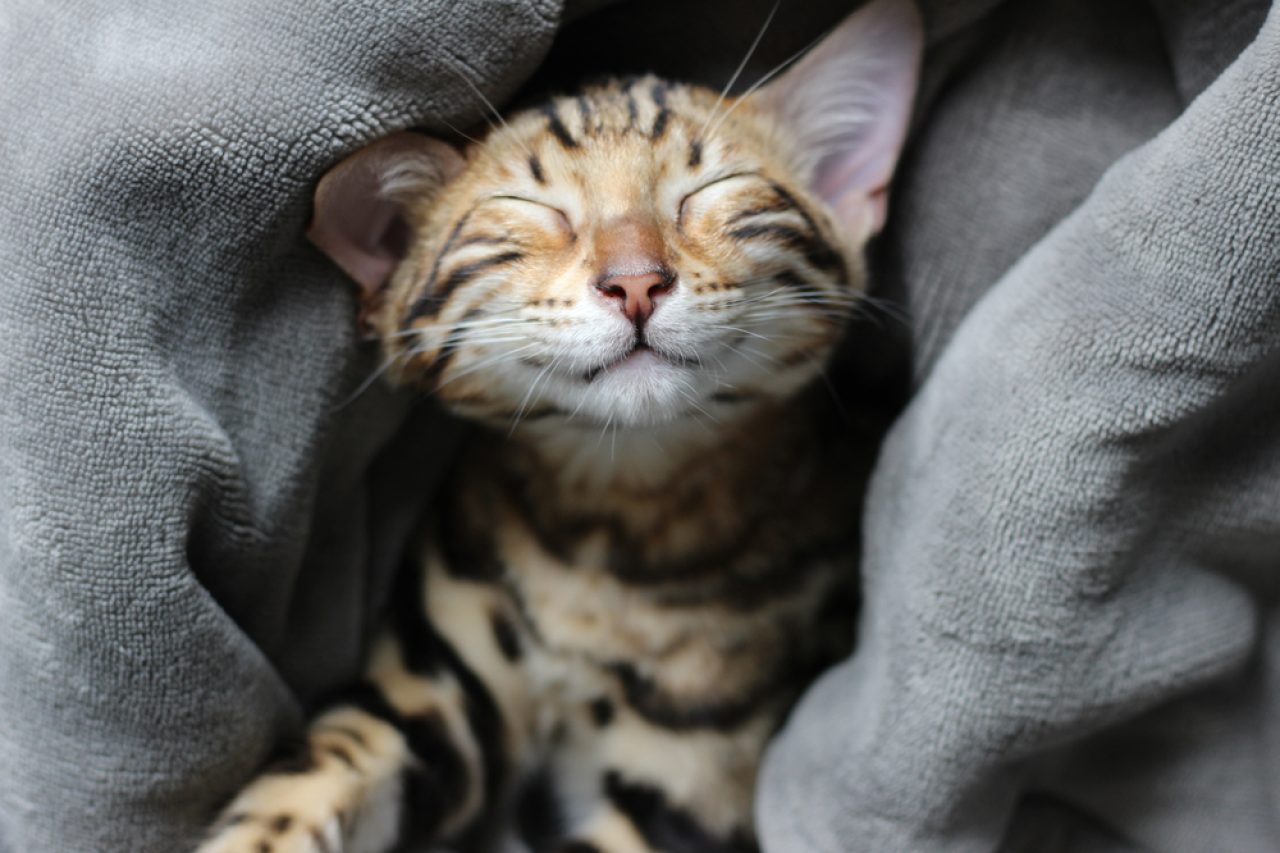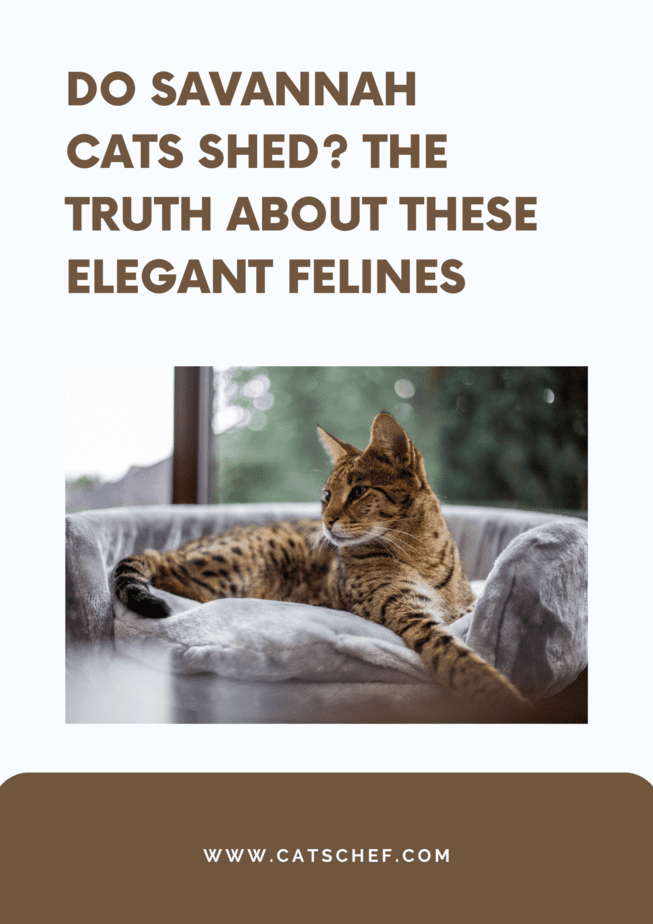📖 Table of Content:
Welcome back, everyone. The other day we were talking about Savannah cats; that beautiful, elegant, but a bit wildish breed. Yet, we forgot to mention something. Do Savannah cats shed? Are these exotic creatures different than other cat breeds?
We’ll talk about that topic today. But, what do you think? So far, we know that they are a short-haired breed and that they have two layers of fur. We’re also familiar with their unique pattern, and that they can be brown and silver spotted tabby, black, and black smoke.
These energetic fluffballs won’t be easy to tame, and surely they won’t make it easy for you to help them with grooming if you decide to do so. But, should you brush your wild feline? Is it the same for all Savannah cats? Let’s find out together!
Do savannah cats shed?
If your first thought was something like, “of course they do,” or “is there a cat breed that doesn’t shed”, you were right. Yes, Savannah cats, like any other cat breed, do shed.
It’s true that their connection with wild Servals makes them special. So, even though they are tightly connected with our domestic breed, they won’t shed as much. That’s why they top the list of hypoallergenic breeds.
However, no cat breed is completely safe for people who have problems, and the Savannah cats are no exception. They produce fewer allergens without a doubt, but they still have that Fel d 1 protein that causes allergic reactions in people.
To say that Savannah cats don’t shed would be a complete lie. So, they’ll always have that all-year-round shedding process and you can’t do much about it. You just have to accept it as it is.
The amount of fur they lose greatly depends on the climate they live in and other factors that we’ll mention below. Since their country of origin has a warm climate, that means that they may shed more in other places to get ready for winter.
Actually, when it comes to Savannah cats, something other than temperature plays a major role in their shedding. We’ll touch upon it a bit later.
What can cause excessive cat shedding?
Whenever I have to answer the question do Savannah cats shed excessively, I give a negative answer. The truth is, they don’t lose a lot of their fur at all. These beauties can be considered as one of those hypoallergenic breeds since they actually do produce fewer allergens.
You won’t need to spare a couple of hours to clean after this wild creature, but certain situations can help her create a hairy mess. If you’re wondering what those are, keep reading to find out.
1. Poor hygiene
As for any other breed, poor hygiene may make your Savannah cat lose her fur in bigger amounts. When you don’t help your feline with grooming, she may have some problems that will mostly be shown this way.
Also, if you’re not taking good care of her litter box and living environment in general, your fluff may start shedding excessively.
2. Diet
Diet has a major role in keeping your feline healthy and her fur shiny. Therefore, you should give your kitty a lot of high-quality food that is rich in essential nutrients for her. Those are mainly proteins, fibers, and Omega-3 and Omega-6 fatty acids.
Of course, she’ll need some vitamins and minerals as well. So, if you’re giving her kibbles, completely dry food, or meals that are high in carbs, Savannah cats do shed more compared to their regular shedding cycle.
3. Stress and anxiety
Any cat breed, and so do Savannah cats, shed more often when they’re under a lot of stress, or when the anxiety is getting the best of them. Both of these can be caused for almost the same reasons. Your feline may lose her hair more even at the slightest change in her environment.
If you brought home a new pet, or you moved to another place – it can trigger this process. Perhaps, your furbaby went through a stressful situation, or she spent the night at your friend’s apartment. All of this can make her hair fall out in bigger lumps. As soon as you notice that something suspicious is happening, try to remove stressors and talk with your vet.
4. Health issues
Besides stress and anxiety, your Savannah cat may have some underlying health issues if she’s shedding excessively. Of course, the first that we have to mention is the most common – parasites.
If your feline is dealing with fleas or mites, she’ll scratch and bite herself often. This will, in turn, cause fur loss and even bald patches in some places. Your furbaby may be allergic to them as well, which will make this whole thing a bigger problem.
Therefore, allergies are the second health problem that can cause excessive shedding in Savannah cats, as well as in other breeds. Perhaps she ate something she’s allergic to, or it’s dust, pollen, or other common allergy triggers. Whatever it is, pay attention and try to prevent it.
Bacterial or fungal infections can also be the reason why your feline’s fur isn’t as shiny and healthy as it could be. Other more serious conditions like kidney problems, liver, and thyroid issues may cause excessive shedding, too.
In case you suspect that your feline has an underlying health issue, stop asking yourself the question “Do Savannah cats shed?” Rather, talk with your vet and get her adequate treatment.
5. Sunburns
Savannah cats, unlike any other breed, love spending time outside. Therefore, one of the main reasons for their excessive shedding is actually sunburn. Since they have short hair their skin is directly exposed to the sun.
Photoperiod is the term for the amount of light that a cat is exposed to. So, even though some people believe that cats shed more as temperatures are changing, the reality is that they are losing more fur when they spend more time in the sun.
These fluffs are extremely active and they love to be sun-kissed all the time, so if you suspect that your feline may have sunburns, it’s better to reduce her time outside. Except for shedding, your Savannah cat may be a bit sensitive to the touch.
The most affected areas will be those that have the thinnest fur, like their ears and the area between their eyes and ears as well. Skin color may change slightly as well and the affected area may appear a bit swollen.
If your feline is scratching the affected area and twitching her ears, maybe she actually has sunburns. Constant exposure can lead to serious health issues like squamous cell carcinoma (SCC) that may have fatal consequences. Therefore, it is crucial to react if you notice any changes.
Sunburns are painful for cats, so some treatment for relieving the pain will probably be the first choice of your vet. He may also clean the affected areas, and prescribe some antibiotics if the infection showed up as well.
It’s also possible to home-treat your feline by putting on a cold compress to minimize the pain and inflammation. Don’t try using sunscreen on them, because they contain a lot of toxic ingredients that may cause problems for your feline if ingested.
In case you think that it’s the only solution, talk with your vet about it and choose cat-safe sunscreen. Also, before you actually apply it to her whole body, make sure you do the allergy test. Put a little bit of it on a particular part of her body and monitor her for the next 24h.
6. It’s that time of the year
There’s no cat breed that’s not shedding all-year-around, it’s a normal and necessary process. However, some felines tend to lose more of their hair twice a year when the outside temperature is changing.
So, you can expect your Savannah cat to shed more if you live in those areas where winters are cold and summers really hot. For this reason, your fluffy ball of happiness will need to grow her winter coat, so it can be warmer for her, and she’ll need to get rid of it as soon as temperatures start rising.
How to control shedding in Savannah cats?
Now that you finally know all the reasons why your Savannah cat is shedding, it’s time to figure out if you can somehow control it. I have to say that it’s not going to be a piece of cake, but if you keep doing this regularly, you’ll need to clean your living space less.
Yes, you read that right. Your feline’s hair won’t be everywhere anymore. Of course, there are a couple of ways to help your furbaby maintain her coat, and your Savannah will love them all!
1. Grooming
The best way to control shedding in Savannah cats is to start grooming them regularly. You don’t have to use a brush since a rubber glove can be enough. Their short hair won’t tangle much, but it may get a bit dirty.
This is going to be a pretty difficult task and you may need some help. You know, it’s really hard to make your Savannah baby sit down calmly for a longer time. Another piece of advice – use a pet-shedding glove instead of a brush. That way, you’ll be able to quickly remove excessive hair from her body.
Another trick that can be useful is to brush her fur at the end of the day when she’s tired of all the daily activities that she’s been doing. She’ll be tired which requires less of your energy to clean her.
When you help your feline to clean herself, especially if she was outside, you’re removing other possible allergens that she may collect. I’m talking about pollen or dust, which are the most common culprits for allergies both in people and cats.
2. Baths
You may tell me that most cat breeds don’t like water and that they’ll jump out of the bath as soon as they get the chance. That’s undeniably true, but Savannah cats don’t belong in that category. These beautiful felines will enjoy dipping their paws in some water.
Since giving her a bath will help you to control shedding, I think it’s a win-win situation. Your feline will enjoy getting her fur wet and it will be easier for you to clean afterward.
3. Wet wipes
This is recommended for most breeds since they don’t like water (as you already know). So, using wet wipes is actually a substitution for giving them a bath. I’d recommend you do this with your Savannah in case you’re in a hurry to clean dirt from her coat.
4. High-value food
Each feline needs well-balanced meals and food that’s high in proteins, minerals, and vitamins, essential for a healthy life. Your furbaby will need a lot of Omega-3 and Omega-6 fatty acids to have stronger and shinier fur.
Serve her meals like chicken, duck, and fish since they actually contain all these important nutrients. She needs food that’s high in proteins as well, but avoid those meals that have a lot of rice, or corn.
Of course, cats are obligate carnivores, and Savannah cats are no exception either. Wet cat food is a great choice, especially those meals that are chicken-based.
5. Clean your house
Last but not least, clean your house more often. If you want to control your feline’s shedding, you’ll need a good vacuum cleaner. Since Savannah’s hair is short and they don’t shed as much as Maine Coon, for example, you’ll be able to quickly clean your living space.
In case you want to make sure that the air you’re breathing is clean, you’ll need to invest in air purifiers that will help you with that. These little devices will take in the polluted air and then, using special filters, convert it into “safe air.” Sounds cool, right?
Just make sure that you use detergents that aren’t toxic for animals, nor harmful to the environment.
Final words
After going through all the possible reasons why Savannah cats shed more than normal, and discovering ways how to reduce the amount of hair they lose, I think you’re ready to own one of these.
As with any other cat, this beautiful breed is going to be a pure bundle of joy in your home. Indeed, she’ll be more active than the majority of cat breeds. So, if that’s not a problem for you, what are you waiting for?!
Adopt or buy one of these elegant beauties and enjoy extremely active days. Another bonus point for Savannah cats is that they shed less than most other cats, therefore, they produce fewer allergens.
They are not completely hypoallergenic, though, so it would be best to test your reaction to them in case cats can trigger your allergies. These fluffs have one of the most beautiful fur patterns in the whole cat world, so why wouldn’t you brag about one?
